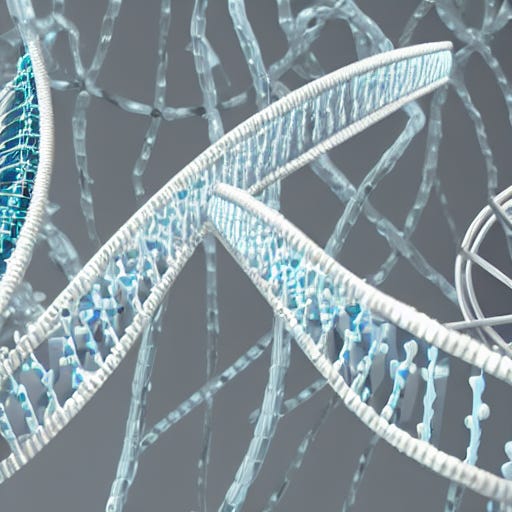How much does a polymerase cost?
How much does a polymerase cost? About 0.3 picoCents Or perhaps more helpfully $92.55 for a NovaSeq X 25B flowcell. Well… that’s my best guess anyway.
In violation of Betteridge’s law, this is an honest inquiry rather than a rhetorical question. I’ve been trying to estimate how much Illumina spend on reagents. The most expensive reagents in a sequencing run are likely the polymerases and nucleotides, the two key components in any sequencing-by-synthesis sequencing approach.
Synthesis costs for Illumina’s novel reversible terminators are difficult to estimate from public information. But I thought perhaps we could have a crack at estimating polymerase costs.
In Illumina sequencing, polymerases are used both in the cluster generation (bridge amplification) process and the sequencing itself. Let’s address each part of the process separately.
Bridge Amplification
Pascal Mayer’s original bridge amplification patents demonstrated the process using Taq, this is probably the most commonly used polymerase in biotechnology. Polymerases are usually sold by the “unit”, somewhat vaguely defined as the amount of polymerase that will incorporate 10 to 15 nmol of nucleotides in 30 mins. The original patents used 0.75 Units of Taq over a 38.5mm² well, or 0.02 Units per mm²
A Genome Analyzer 2 lane is about 60mm long and 1.5mm wide (90mm²), there are 8 lanes so 720mm² in total, we assume that Units used will scale with area.
The cheapest Taq I could find was from this supplier which is ~2.5 cents per unit. At this cost we’re looking at about 35 cents in polymerase costs for bridge amplification on a Genome Analyzer 2.
Now, let’s think about the NovaSeq X. As Graham pointed out on twitter, the 25B flow cell is reasonably high density. The total flow cell area looks like it’s roughly 70x100mm, with ~75% of it active, something like 5250mm². At this size, we’d be looking at ~$2.55 in polymerase costs for the bridge amplification process.
Illumina have done a ton of polymerase engineering, higher activity polymerases will further reduce costs. But, perhaps this gives us a reasonable upper bound.
Sequencing-by-Synthesis
The sequencing process itself likely uses far more polymerase. Recent Illumina patents don’t seem to state how much polymerase is used, so again we have to go back to the original Solexa patents.
These state that a 0.015 μg/ml of SBS polymerase is used, and that 175μL is flowed into each lane during each incorporation cycle. Oh dear, those aren’t Pol units. This means I’m going to have to struggle with some unit conversions. Someone check my working.
0.015 μg/ml according this online calculator, this is molar concentration of 0.157nM assuming we’re talking about 9°N, which has a KDa of ~95.
Let’s assume that polymerase production costs are pretty stable and we want to use our public Taq pricing to estimate polymerase costs. But of course our Taq pricing is in “Units”. This publication suggests that one Unit of Taq is ∼8x10¹⁰ molecules.
Assuming I’ve done this conversion correctly that means we have a total of 6.64 nanoMoles of Taq (50000 Units@$1250). At a cost of $188 per nanoMole or ~3 cents for 1mL@0.157nM.
For all 8 Genome Analyzer lanes this works out as ~4 cents a cycle, $12.5 for 300 cycles.
The NovaSeq X 25B flow cell having an area roughly 7.2 times larger, would cost $90.
Summary
Based on the above a NovaSeq X 25B run would use $92.55 of polymerase for a 300 cycle run. But even if I’ve not messed up the math, I would imagine this is just an upper bound on polymerase costs.
Illumina have 15+ patents on mutant polymerases and have most likely improved efficiency since the original Genome Analyzer work. These efficiency improvements may well let them use lower concentrations of polymerase, further reducing costs.
But in any case I suspect only a very small fraction of the $14000 you pay for a NovaSeq run is the cost of polymerase production.
Comments, complaints, corrections and better estimates are very welcome. Please feel free to reach out in the comments section below, on twitter, or via email (new@sgenomics.org).



